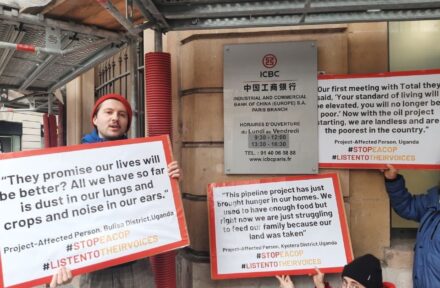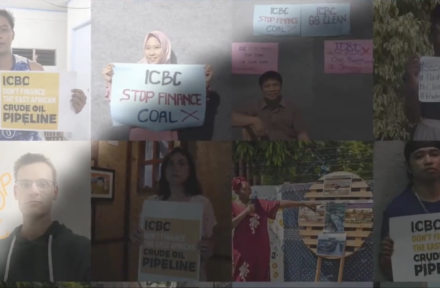Written by Ezgi Erdac
Residents of the Adana Province are seeking justice through local lawsuits and an ongoing campaign called “Adana’ya temiz hava” (Clean Air for Adana) to stop the construction of the new coal power plant project in Adana. According to the residents, the planned 1,320-MW EMBA Hunutlu Coal Power Plant poses an undeniable threat to public health.
Since 2015, people living in and around Adana Province have been opposing the construction of the EMBA Hunutlu coal power project in the streets, on social media, and in courtrooms, fearing the immediate and long-term impacts of fossil fuel projects on their lives.
The approval for the coal project was granted in 2015 after receiving a green light from a highly questionable Environmental Impact Report. In the report, Turkish officials ignored the project’s negative impacts on public health, the environment, and agriculture. The government then gave a green light for the project in the same year.
The journey started in 2017 when the Turkish Foundation for Combating Soil Erosion for Reforestation and the Protection of Natural Habitats (TEMA) filed a lawsuit against the investors of the EMBA Hunutlu project. The case was started for the protection of the sea turtles, but when TEMA entered into the picture, more people began to acknowledge the future scenarios.
While it was not included in the Impact Assessment, a study by the Centre for Research and Clean Air (CREA) released last year highlighted that emissions from the EMBA Hunutlu project will dramatically increase air pollution in the region, including in the city of Adana where almost two million people live.
If constructed, the EMBA power plant would join three other power plants already operating in Adana, which, according to CREA, are already responsible for close to 200 deaths in the region every year.
In response, local residents seek legal justice through a series of lawsuits against the currently existing and planned EMBA coal plant. Now, there are over 20 lawsuits that the residents of Iskenderun Bay have filed.
13 of the 20 are against three already existing power plants. These include the ISKEN Sugözü Power Plant with 1,210 MW capacity, the Atlas Energy İskenderun Power Station with 1,200 MW capacity and the Egemer Doğalgaz Çevrim Santrali with 904 MW capacity. The EMBA will be the power plant with the highest capacity, which is 1320 MW.
There are also more than ten projects which are currently undergoing Environmental Impact Assessments and could be approved in the next year. According to the European energy finance NGO, BankTrack, “Any new coal projects to operate in Iskenderun Bay, including Emba Hunutlu, will have a major impact on the primary agricultural activity of the local communities.”
An additional seven of them are trying to stop the construction of the EMBA Hunutlu project as well.
Seven of these court cases were opened by the locals in 2016 against the Turkish Government to cancel the permits for future coal plant construction plans in the region. The Union of Turkish Bar Associations, East Mediterranean Environment Platform, Bar of Adana, Adana Medical Association and many other associations applied for the Ankara 7th Administrative Tribunal to prove the negative impacts of the EMBA project.
The biggest shock for the Turkish citizens came right after the release of the expert report in 2017. This report was an official report including public health, social, economic and environmental impacts of the EMBA project. This report was taken to court to show that the percentage of cancer cases and the types of cancer significantly rose following the construction of the coal plants.
Furthermore, the coal plants pose also a considerable risk to local farmers as well. Adana and the Iskenderun region covers close to seven percent of Turkey’s total agricultural value. This includes more than thirty percent of Turkey’s citrus fruit production and one-quarter of its watermelons. In this way, any added risks of air, water or soil pollution pose an incredible risk to Turkey’s agricultural sector, as well as Turkish consumers.
Today, even though the court case was not a success for the local people, NGOs like TEMA and WWF have pledged to continue their campaigns to shut down coal power plants across the region.
As environmentalists, our biggest will is from the Chinese investors and the Turkish government to take our problem more seriously, shut down the existing plants, and cancel future plans.
About the author
Ezgi Erdaç, Turkey
Ezgi is a climate policy officer venturing into the world of reporting. She holds a bachelor’s degree in International Relations and a masters degree in EU Trade and Climate Diplomacy. Ezgi is looking forward to uncovering the fossil fuel stories in her country and helping the world.
This story was made possible through the support of Climate Tracker.




